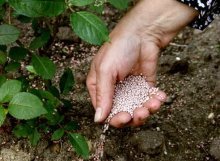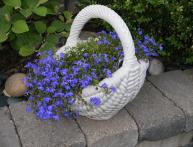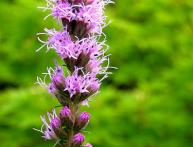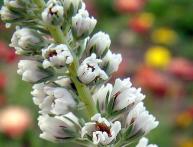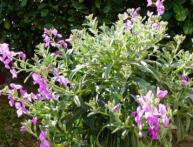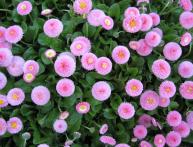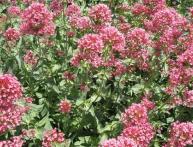How to fertilize roses: revealing the secrets of wild flowering
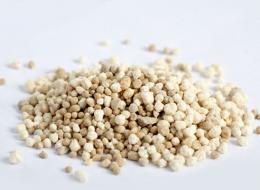
Roses are capricious plants. Their successful cultivation depends on the correct and timely application of fertilizers. Knowing the nuances will not only help the flowers bloom profusely, but also not cause harm.
Content:
Fertilizer for roses
Having chosen a suitable place for growing, you need to think about adding nutrients, which can be organic and mineral. There are two ways of feeding: root and foliar.
The choice of fertilizers is huge, and you need to understand why a rose needs a certain substance:
- Nitrogen. Responsible for creating abundant green mass. If you add a lot of it, the rose will have strong shoots, but few flower stalks. Nitrogen fertilizing should not be overused - be especially careful with it.
- Phosphorus. Required for formation of peduncles and flower buds. The development of flowers and stems and the number of flowers depend on the addition of phosphorus. If a complex of mineral fertilizers contains phosphorus, but lacks potassium, then there will be no benefit from phosphorus.
- Magnesium. It is quickly washed away by rain and melt water. The need for it increases during the formation of buds in roses.
- Iron. This element plays a leading role in the prevention of such a dangerous disease for roses as chlorosis.
Types of mineral fertilizers:
- Granules and dry powders.
- Pills. They dissolve in water, and a solution for foliar feeding is prepared from them.
- Liquid solution. Sold in a bottle as a ready-made solution. Used during the summer according to the nutrient application schedule.
Before fertilizing For roses, you need to understand their types and types.
How to fertilize roses in spring?
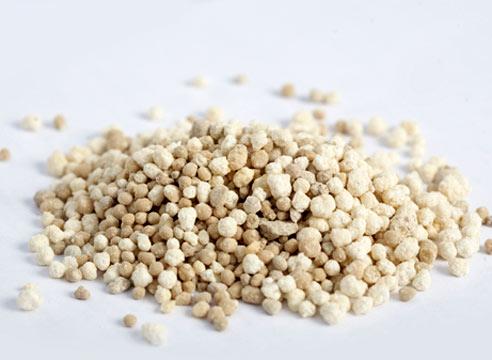
Organic and mineral fertilizers for rose bushes complement each other perfectly. The action of some is impossible without the others. The main nutrition of flowers is provided by mineral fertilizing. Organic fertilizers decompose slowly and help minerals to be better absorbed.
Experienced gardeners recommend the following sequence: first - mineral fertilizing, then - watering with organic matter.
Rose needs applying fertilizers Twice a year:
- During the treatment period in spring at the beginning of growth.
- In the summer after the end of the first flowering to help the plant gain strength for the next round. Here it is impossible to determine the exact period; it depends on the variety of roses.
When choosing a mineral supplement, pay attention to the composition. It must contain nitrogen, potassium, magnesium, phosphorus, iron and other trace elements that play a secondary role.
If you use liquid fertilizer, be sure to water the plant when the soil is moist. If the soil is dry, the roots of the flower may be burned.
Mineral fertilizers are evenly distributed over the surface of the entire soil around the roses, and then the soil is slightly processed with a hoe.
Mulching plays a huge role in caring for roses. It helps retain heat and moisture in the soil, protects the root system and improves the appearance of the bush from an aesthetic point of view.
Mulching principle consists of scattering a bucket of garden compost around the rose bush.If your site does not yet have a compost pit, we recommend that you consider creating one. This is a great way to make your own organic fertilizer.
To prevent the compost around the rose from being noticeable, sprinkle it with chopped decorative bark. Sold ready-made in flower shops. Mulching elements should not cover the base of the rose trunk.
How to fertilize roses for wild flowering?
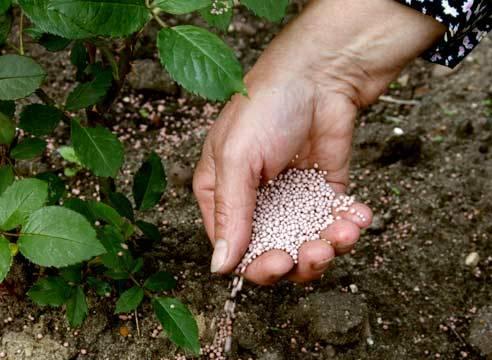
Abundant flowering of rose bushes is the dream of every gardener. The main thing is that everyone can do it. Let's go back to the basics and focus on fertilizing roses before planting.
Roses are demanding of soil fertility - they need minerals and humus. Place 5 cm of humus at the bottom of the dug hole. Combine the excavated soil with superphosphate, potassium salt and humus. Mix this mixture, fill the hole with it and water it. Rose seedlings are planted in a prepared place after 2 weeks. Preliminary soil preparation is the key to lush flowering.
Some rose lovers get carried away mineral fertilizers, forgetting about organics. It is necessary to increase soil fertility. Organic matter helps attract earthworms, which are responsible for loosening the soil. And this increases air penetration.
Organic fertilizer is applied in liquid form. Dry droppings or manure will burn the roots of flowers, especially when it comes to seedlings.
To obtain abundant flowering, do not forget about foliar fertilizer. It is carried out in warm cloudy weather with a special sprayer.This is done in the evening so that droplets of the nutrient solution are gradually absorbed by the leaves and do not instantly evaporate in the sun.
Achieving abundant rose blooms is not easy. It is important to find an approach to your flower variety. To do this, use various methods and observe the result.
Fertilizing while growing roses is a wide field for experimentation. Follow moderation, study feeding techniques and approach the process wisely. Then you will enjoy the luxurious appearance and rich aroma of garden roses!
The video will tell you about fertilizing and feeding roses:
Interesting information about the vegetable garden

